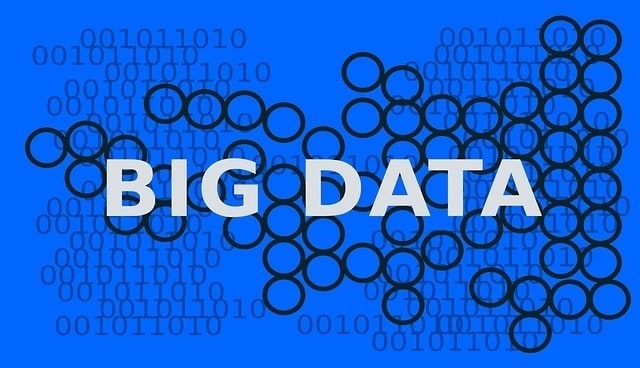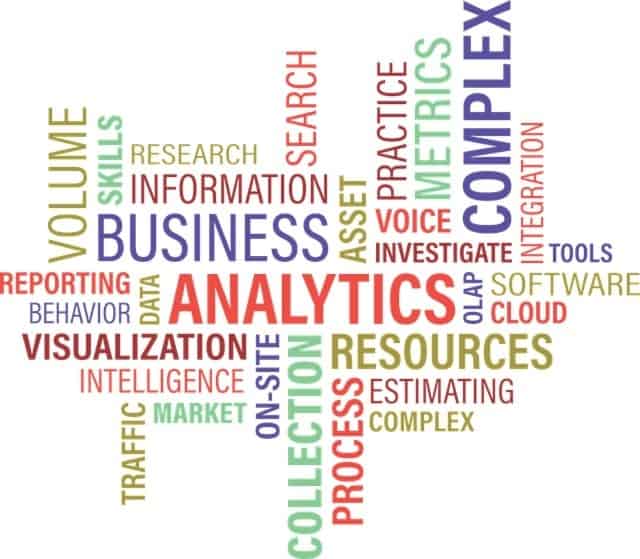
In the past few years, technology has grown at an unprecedented pace. However, businesses were not able to keep up with it. This led to a major gap between customers and businesses. Digital marketing has been on the rise and with its customers’ expectations too. Today, with the ongoing pandemic and its consequent lockdown, businesses have adopted tech for the satisfaction of both its employees and customers.
As the fear of pandemic spread, people on both sides got more and more dependent on personalized digital interactions. While companies are still adjusting to digital interactions and digital work there is an increasing need to hold on to customer loyalty. Hence, companies have started to merge their traditional marketing efforts with digital by investing largely in the areas of digital commerce and social marketing.
Businesses are focusing on generating revenue by providing the best customer experience by utilizing optimal digital technologies. In between the hustle of going digital and trying to create a buzz through the marketing campaign, marketers need to determine if their efforts are generating revenue. This is because many are spending money but are getting little profit in return. This can be either due to they are still ascending the learning curve or avoided getting a grip on big data analytics.
Digital technologies enable marketers to explore customer data in greater detail. This can be used not only for prospecting but for ongoing customer engagement. Hence, executives across the globe are supporting data-driven processes that emphasize on marketing principles. These efforts are aimed at facilitating the growth of personalized interactions and discarding the outdated view of marketing is a luxury add-on. Today, many marketers have realized the importance of data and looking to leverage it. The reason behind this is because Big Data holds enormous potential.
It can be used to describe target customers with accuracy and detail which was unfathomable a decade ago. Most of the old-school marketing efforts are limited to direct mail campaigns, tracking returns, and the number of subscribers to newsletters. Marketers in the digital age can tap the data pool to be utilized in his marketing efforts. This data might range from customer’s digital clicking behavior, exercise habits, time spent on various sites, and purchasing history to social media postings, time spent in the car, and caloric intake.
Data That Matters
Today, there is an immense amount of data available at any time. However, businesses need to remember that not all is if equal value. Marketers need to first choose what kind of data is important to them and will contribute to their business effectively. For these businesses might have to first segregate useful data from the immense amount of data is available. However, the most essential thing for success is defined by what you choose data, how you use it, and the ROI it brings. Simply said, the goal for marketers is to turn the right data into marketing actions.
To understand data more easily, marketers can start thinking about the premise that will produce profitable conclusions if you get it right. In these three categories, big data matters:
Who: Start by thinking who are your current customers? and metrics regarding their e-mails opened, browsing behavior, click-through rates, location, response to loyalty programs, blog readership and purchases, social media engagement, involvement in your online community, coupon offers, and others. This data is purely marketing data and can be found through understand and continuous analysis.
How: The next thing you should start thinking about is how you have marketed to your current customers? You should also ask what were the results for their overall engagement and purchasing behavior?
How Much: Lastly, ask yourself what is the cost vs. return of your marketing efforts? This is crucial for showing sales, marketing expenditure, net profit, gross income, and other metrics that gauge MROI.
Effectively Using Data
Data can help businesses to improve their ROI as well as get ahead of the competition. Today, with the availability of ample data they can use several practices to implement data. While ever businesses need their personalized methods to optimally utilize data some of the techniques below give a foundation from where they can build on. So, let’s understand it better by taking a deeper dive into practices fueled by big data for marketing.
- Understanding Customers
In the past few years, there has been a rise in competition and most of the companies want to hold on to their loyal customers. However, if companies want to make their campaigns more targeted, they need to first know who their customers are. Big data analysis can help digital marketers to better understand their target audience. It can also help them create better personas of the buyer and ideal customer profiles.
Marketers can even combine and merge the data from several sources like online, offline, mobiles, tablets, and others. Once all the crucial data about your target audience is collected it can be used for creating highly targeted content and making marketing campaigns more simple and effective. Knowing your customers, their interests, needs, and the way they behave and react to different content and products can bring them in the loop and help you better target them.
- Customize Campaigns
Much huge marketing campaigns fail and the most common reasons are because their messaging isn’t relevant. If businesses want their marketing campaign to outshine others they need to put an extra effort to personalize them. If they are unable to do so, it will most likely fail. With the help of big data, marketers can create highly specific and personalized marketing campaigns on the right channels with ad copies and landing pages.
Data related to customers, sales, products, and marketing campaigns can help to reduce the time for the launch of a new marketing campaign from 8 weeks to a single week. Twiddy’s pricing recommendations to homeowners is another good example of data-driven customized marketing campaign. So, start to collect crucial data from all different channels and personalize your marketing to boost ROI.
- Improve User Experience
While customized marketing campaigns help you better serve your audience, they might not be able to deliver if the landing page has a poor user experience. It might even make your paid visitors leave the website without any purchase or subscription. For instance, Fairmont Hotels and Resorts were successfully driving traffic to their website from Facebook ads. However, visitors continued to leave the website without even reaching the booking stage. They then collected and utilized visitor’s data from multiple sources to understand the habits, device, average income, travel history, and others. This helped them understand and better optimize their website for conversions. In turn, bookings increased due to better website experience.
Hence, it has become very important how user-friendly your landing page is. As it can both supercharge marketing campaigns by boosting conversions.
- Utilize Marketing Budget Better
No company has an unlimited marketing budget. They have to deliver results in a limited budget with limited resources. Hence, smartly managing your budget becomes crucial. Big data helps you maximize ROI by helping you invest your budget on the right target market, channels, and products. According to a review by MIT Technology, “The numbers show how much lift each data point provided for each ad in each channel. With that data, marketers can make better decisions about how to allocate their ad budgets. Indeed, the analytics themselves will identify smart choices.”
With the help of big data, marketers can concentrate on channels that promise to deliver the highest ROI. Similarly, they also encourage you to avoid campaigns with poor CTR and conversion rates.
- Analysis-Based Marketing Decisions
Lastly, big data allows marketers to make the right choices at the right time as decision-making is at the center of marketing ROI. The types of decision-making led by data are accurate, real-time, timely, result-oriented, pro-active, productive, and well-managed. They should be able to drive accuracy, customer segmentation, and other benefits at the same time.
For instance, US Xpress is a transportation solution provider and collects data from different sources such as truck engine operation, GPS, fuel consumption, and others. This data is then used to boost productivity and optimize fleet management. This further helps them cut down their operating cost each year by millions of dollars. Marketing decision-making can be boosted and empowered by big data.
All these practices are some of the ways to use big data optimally on their marketing efforts to get the best ROI possible for marketers. Businesses can use data analytics as their secret weapon to get a competitive advantage. However, it is also worth noting that without having the right tools in place data becomes more like random numbers and fails to offer little key insight. Sometimes selecting the right tools can be overwhelming so we have listed on the type of tools businesses can look for when searching for software systems for their organization.
Bonus!
When it comes to software systems, the idea of one fit for all doesn’t work. It is important to find systems as per your industry and niche. Find the best of these:
CRM Tools: Customer relationship management software can help manage relationships, communicating with consumers, tracking engagement, and measuring campaign success rates. It aims to help marketers strengthen their relationship with consumers and maximizing sales to the customer. CRM tools sometimes over lapse with marketing automation software; however, looking for a separate tool can be rewarding.
Social Media Tools: Social media software can automate social media outreach across several channels. Additionally, they keep track of the effectiveness of each. This tool can not only help saving time but also helps build a brand and make a profit when used effectively.
Analytics Tools: The most important and tough task is to make sense of the data and use it profitably. Analytics software provides detailed reports to help you evaluate your past data and keeping you updated with your future information. This can make marketing strategies is indispensable.
Many companies will experience that despite using all the above techniques in their marketing activities, they observe that it’s still not performing well. In such a case, they should try experimenting with an ongoing measure to determine if they are effective and if not, they what are the changes they needed. This becomes vital in situations when current measures taken by a business are not working.
Here, businesses can leverage analytics to measure if the revenue jumped following the last marketing campaign or not. They can take a step forwards and use a survey to collect data which can help determine other factors at play. The data can then allow businesses to measure the success of a different campaign to determine their current need. In the end, all these factors can prove to be both helpful and essential in the success of campaigns and ultimately ROI in the long run.
Bottom-line:
In today’s time, it is more important for businesses to cultivate and enhance the consumer experience by providing them with what they want. Marketing strategies that have stood the test of time all focus on that. This not only works well but now businesses can apply it with more individualized precision. Charles Payne of the Fox Business Network joked recently that Amazon is getting so good at marketing analytics, the company will soon be shipping you stuff you didn’t order.
Even though the technology is not there yet, but there are also ethical and business-related concerns with such an approach. With all the crucial data and necessary tools, businesses can anticipate what consumers want and nudge them towards it. It put their product or service in front of them and increases the likelihood of it being purchased. Hence, this has become and is one of the best ways to grow marketing ROI with smart big data analytics.
Author Bio:
By Shreeya Chourasia
Writing is food to my soul and the quote that inspires me to keep learning is “Learning never exhausts the mind” by Leonardo da Vinci. Tech Research Online has given me a platform to do just that, I learn and I write, and then I learn a little more.
LinkedIn : https://www.linkedin.com/in/shreeya-chourasia-08079216a/





